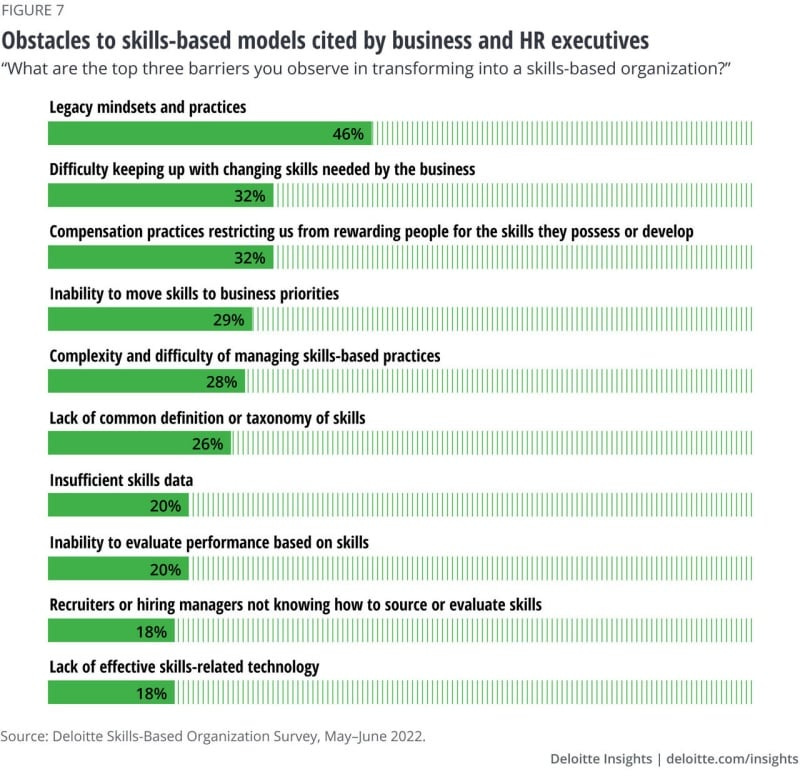The Reality of Switching to a Skills-Based Recruiting Model
The Challenges and Benefits
There is much talk about hiring for skills rather than credentials. Besides changing how we think about work and jobs, we need to define and measure skills and how to pay for them. These are why many hiring managers and HR functions are reluctant to advocate for this approach.
Even with evidence that degrees often do not lead to good performance (see the research done at Google by Lazlo Bock), degrees, certificates, and experience are not only traditional and therefore “safe,” but they fit into standard compensation schemes and mindsets, making them harder to challenge.
A skills-based approach that recognizes and rewards individual skill sets rather than strictly following a job description poses many challenges. It requires that the organization has a rigorous method of defining and measuring what skills are critical and finding ways to overcome vagueness and potential bias.
But there are many benefits to making the switch. A skills-based strategy gives the firm greater flexibility by encouraging employees to develop the skills needed to adapt to technical and economic changes. Encouraging employees to develop new skills makes them feel more engaged and valued. This can improve productivity and reduce turnover.
Despite these benefits, changing from a job-based system to one based on skills is not simple. Deloitte’s recent survey highlights some of the obstacles organizations face.




